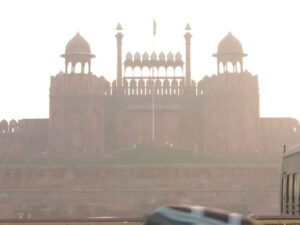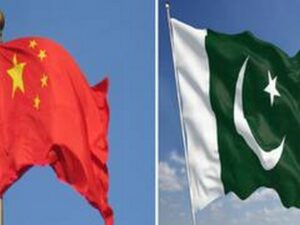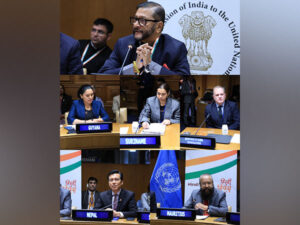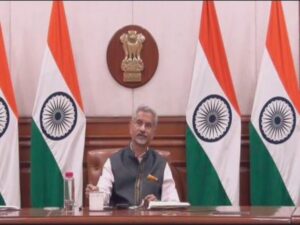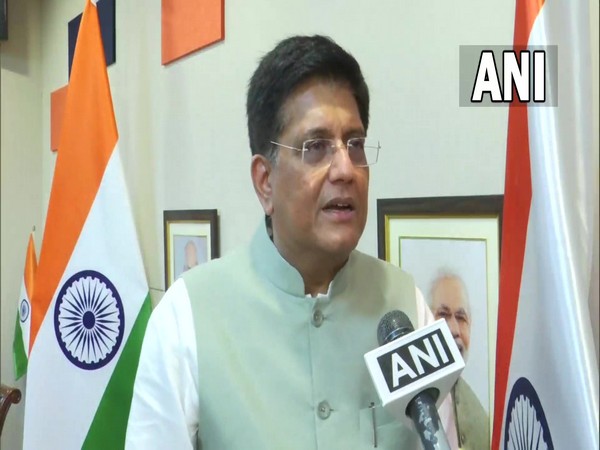
New Delhi [India], September 8 (ANI): Hours after the government approved Production Linked Incentive (PLI) scheme for textiles, Union Minister Piyush Goyal on Wednesday, lauded this scheme and hoped that with this, India has the capacity to make high-quality products at competitive prices.
Appreciating this scheme, the Union Minister said, “PLI (Production Linked Incentive) scheme (for textiles) has been conceptualised to make India truly competitive and bring economies of scale and high-quality production to India.” “Textile sector has seen that, over last many years, we have grown largely in cotton, wool, silk – tradition textiles. But when it comes to man-made fibre or technical textiles, India relatively remained behind. We don’t have much of a stake in the world market,” the Union Minister said.
The Union Minister stressed that, with this scheme, the effort is to promote this industry in India and attract large-scale investments. “Today two-third of international trade is of technical textiles and man-made fiber. Our effort is to promote that industry in India, attract large investments where Rs 100 crore plus or Rs 300 crore plus are invested in India, create about 7.5 lakh direct jobs -indirectly it’ll be more,” he said. Goyal said, “I think this will help India become a global player as well as give India the capacity to make high-quality products at competitive prices.”
Taking steps forward towards the vision of an ‘Aatmanirbhar Bharat’, the Government led by Prime Minister, Narendra Modi, has approved the PLI Scheme for Textiles for MMF Apparel, MMF Fabrics, and 10 segments/ products of Technical Textiles with a budgetary outlay of Rs 10,683 crore, as per the official release by the Cabinet.
PLI scheme for Textiles is part of the overall announcement of PLI Schemes for 13 sectors made earlier during the Union Budget 2021-22, with an outlay of Rs. 1.97 lakh crore. With the announcement of PLI Schemes for 13 sectors, minimum production in India is expected to be around Rs. 37.5 lakh crore over 5 years and minimum expected employment over 5 years is nearly 1 crore. (ANI)







